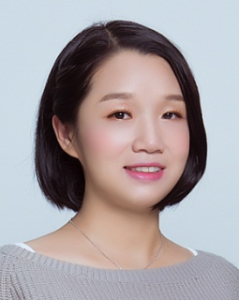 We are delighted to introduce out latest Envrionmental Science: Water Research & Technology Emerging Investigator Jingyun Fang!
We are delighted to introduce out latest Envrionmental Science: Water Research & Technology Emerging Investigator Jingyun Fang!
Jingyun Fang is now an associate professor at the School of Environmental Science and Engineering at Sun Yat-sen University. She received B.S., M.S. and Ph.D. in Municipal Engineering from Harbin Institute University. She was a postdoctoral fellow, working with Prof. Chii Shang at the Hong Kong University of Science and Technology from 2010 to 2012. Her research focuses on advanced oxidation processes in water treatment: kinetics and mechanisms of degradation of micropollutants and formation of disinfection by-products.
Read Jingyun’s Emerging Investigators article ‘Comparative study of naproxen degradation by the UV/chlorine and UV/H2O2 advanced oxidation processes’ and find out more about her in the interview below:
Your recent Emerging Investigator Series paper focuses on naproxen degradation by UV/chlorine and UV/H2O2 advanced oxidation processes. How has your research evolved from your first article to this most recent article?
My first research article was on the formation of disinfection byproducts from algae containing water during my PhD study. My current paper is on the control of emerging contaminants by advanced oxidation processes. So, over the years, the focus of my research has shifted from disinfection byproducts to advanced oxidation processes in water treatment. I am fascinated by the performance of some free radicals in water treatment, particularly for some newly identified radicals such as halogen radicals, sulfate radicals and carbonate radicals.
What aspect of your work are you most excited about at the moment?
I am most excited about exploring new radicals formed in engineering and natural aquatic systems with the ultimate goal of discovering their potential in promoting water sustainability.
In your opinion, which of the two advanced oxidation processes studied was the most effective at degrading naproxen?
For kinetics, the UV/chlorine process is much more effective at degrading naproxen than the UV/H2O2 process, due to the good reactivity of naproxen with reactive chlorine species (RCS) produced in UV/chlorine. RCS are more selective than hydroxyl radicals (HO•), thus the efficiency UV/chlorine process to the degradation of different pollutants are compound specific. Meanwhile, the formation of toxic halogenated byproducts and toxicity alternation induced by RCS during UV/chlorine should be further assessed.
What do you find most challenging about your research?
The most challenging aspect of my research is the combination of laboratory experiments and computer-based modeling to identify the roles of primary and secondary radicals in different advanced oxidation processes, as the databases for the reactivity of some newly identified radicals with emerging contaminants or water matrix components are not available.
In which upcoming conferences or events may our readers meet you?
I will be at the upcoming American Chemical Society National Meeting held in Boston, MA on August 17-18, 2018. Also, I usually attend IWA events.
How do you spend your spare time?
I enjoy spending time with my spouse and our one-year-old boy and twin girls. If there is still time, I enjoy reading, playing yoga and walking.
Which profession would you choose if you were not a scientist?
If I am not a scientist, I think I might enjoy being a chef. I love cooking and sharing food with friends. Nevertheless, being a scientist is much better as there are a lot of unknowns and it is fun.
Can you share one piece of career-related advice or wisdom with other early career scientists?
Being able to enjoy the research that you are doing, working hard and being persistent will eventually bring you what you dream.










